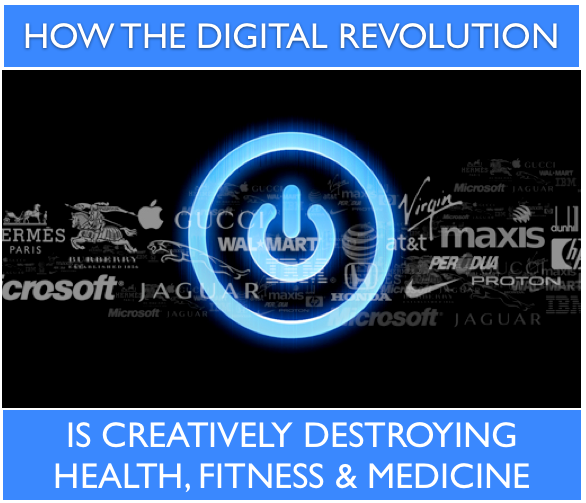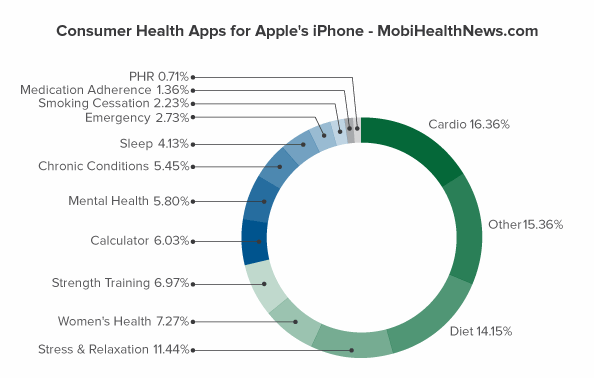Why Health & Fitness Is Being Creatively Destroyed
/
When the rules of the game change what the defenders of the status quo think doesn't matter as much as what customers do. This is how disruption happens and is why the present state of health and fitness, even of medicine in general, is about to shift: radically. Just look back at the music industry during the past decade, enough said. Think that comparison isn't relevant ? Think again.
Originally derived from Marxist economic theory, of all things, and later popularized by Joseph Schumpeter, Creative Destruction is the description of a "process of industrial mutation that incessantly revolutionizes the economic structure from within, incessantly destroying the old one, incessantly creating a new one."
 In a recent post I proposed that the extant health club industry had reached maturity, by addressing the underlying state of the business and S curve theory. Now I'd like to share the hand in glove idea of Creative Destruction which was raised recently by Dr. Eric Topol in his new book, "The Creative Destruction of Medicine". Here's one of Dr. Topol's recent quotes on the book:
In a recent post I proposed that the extant health club industry had reached maturity, by addressing the underlying state of the business and S curve theory. Now I'd like to share the hand in glove idea of Creative Destruction which was raised recently by Dr. Eric Topol in his new book, "The Creative Destruction of Medicine". Here's one of Dr. Topol's recent quotes on the book:
“It is an expression of a consumer health revolution that is just budding,” Topol said. “It’s in its nascent phase, but it is happening right now. I think the consumer-savvy base is waking up. There is a reset here. This digitization of human beings will make a parody out of doctor knows best. We need partnerships. We need physicians working and guiding individuals. Each individual will have a much more precise view of himself or herself biologically, physiologically, anatomically, to work in partnership with physicians.”
When Topol says that the revolution of medical care "will make a parody out of doctor knows best" I think about the bricks and mortar health club business. Today there are nearly 13,000 consumer health apps in the app store. Inexpensive tools are going to increasingly be available to help people ascertain their health and wellness and this will result in a reengineering of the delivery of all health, fitness and wellness. It will also have a huge impact on business models. As Topol explains:
"It won’t start with physicians.... it takes about 17 years for a new medical technology to go from being accepted to being a part of routine care. We can’t wait 17 years. So, we can’t let the medical community drive it.”

As with the fitness industry where extant participants are slow to adopt, changing consumers, particularly ones more open to technological tools, are going to drive adoption whether the industry likes it or not. This will create great opportunities for some and extinction for others.
So what do you think ? Do you agree with Dr. Tobol's thinking and do you believe it relevant to both the medical and fitness industries ? Please contact me Bryan O'Rourke and share your views. I'd love to hear from you.
About the author:
Bryan O’Rourke is a health club industry expert, technologist, financier, and shareholder and executive in several fitness companies. He consults with numerous global brands, serves as a member of the GGFA Think Tank, is Chair of the Medical Fitness Association’s Education Committee and a partner in the Flywheel Group. To learn more contact Bryan here today .








